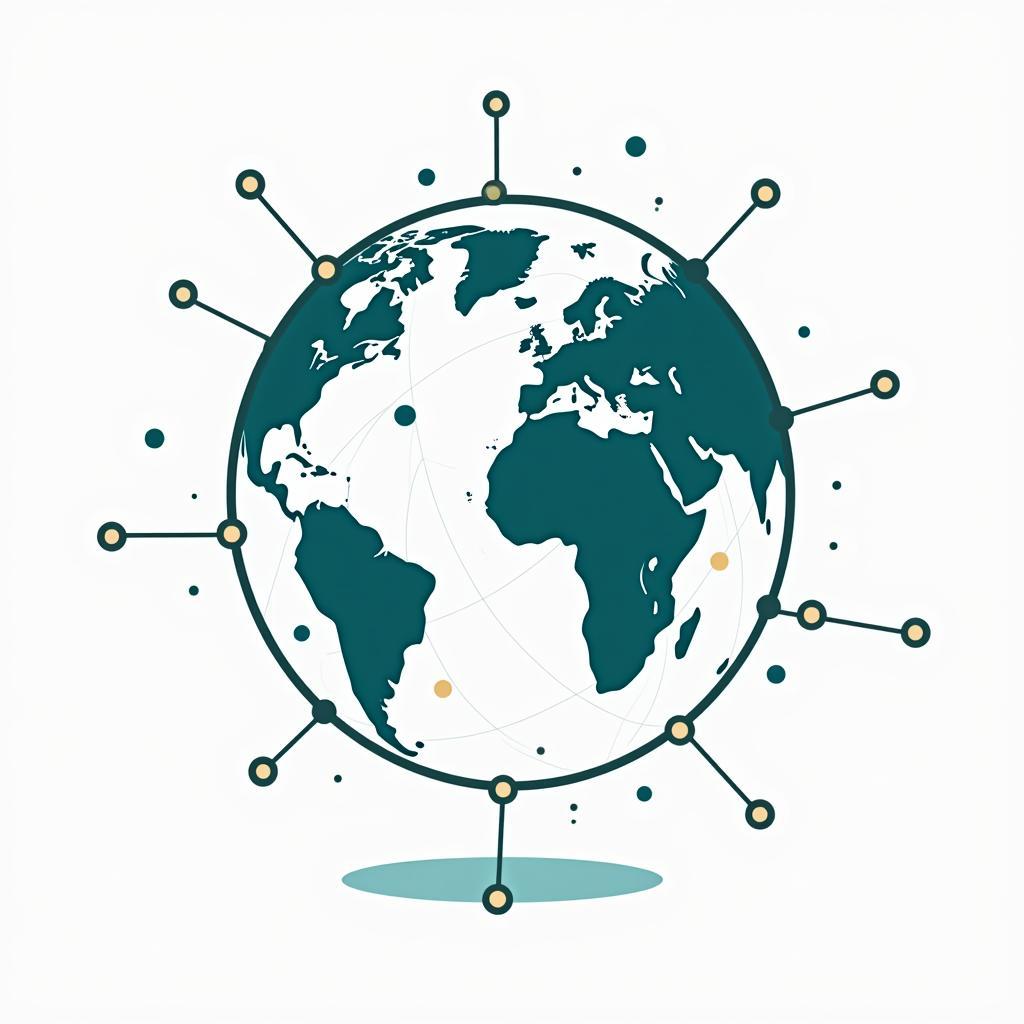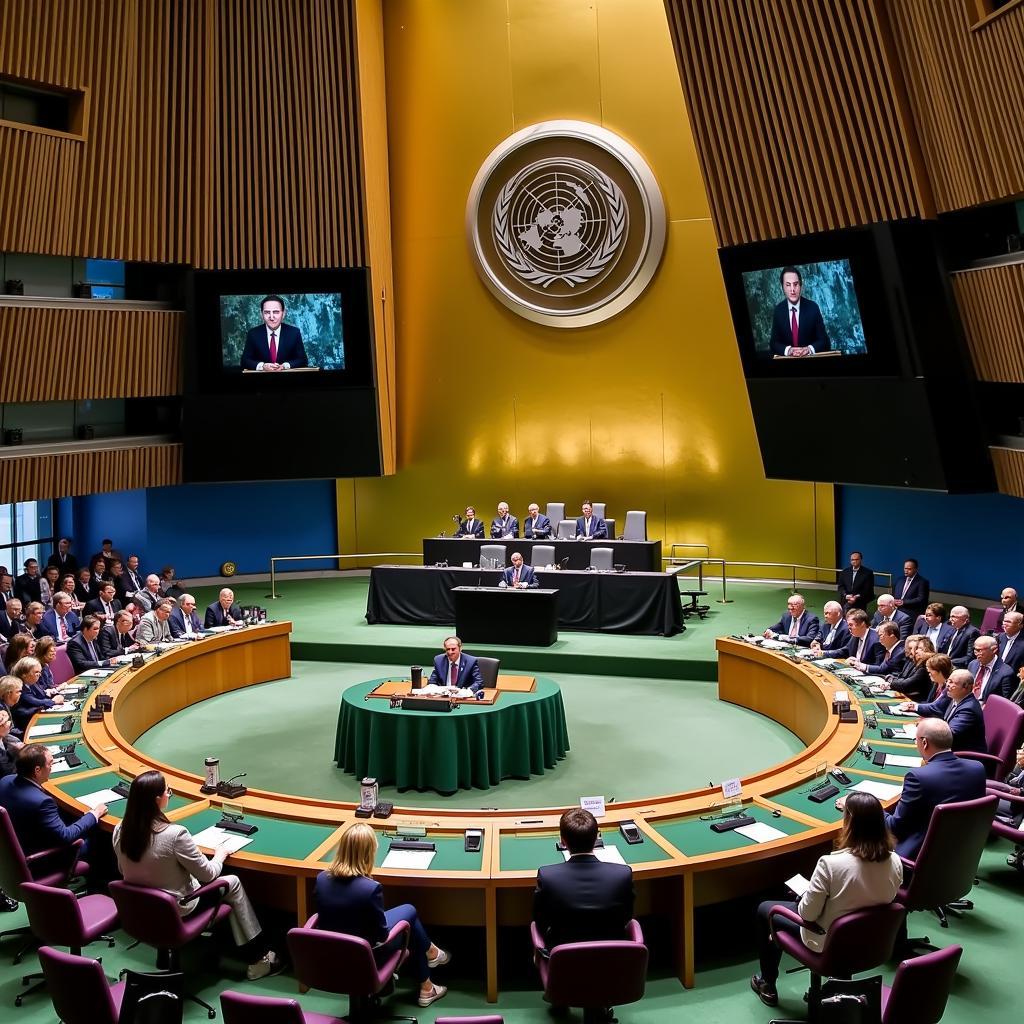The term “World Society Theory” frequently surfaces in discussions about globalization and its impact on our world. It offers a fascinating framework for understanding how global forces shape societies and how we, as individuals, are interconnected in an increasingly complex world.
What is World Society Theory?
World Society Theory, primarily developed by sociologists John W. Meyer, Francisco O. Ramirez, and George M. Thomas, posits that a shared global culture is emerging alongside – and even sometimes in contrast to – individual national cultures. This global culture is not about erasing differences but rather about establishing common norms, values, and institutions that transcend geographical boundaries. Think of it as a set of shared understandings and expectations that guide how nations interact, how organizations operate, and even how individuals perceive the world around them.
 Global Interconnections
Global Interconnections
Key Principles of World Society Theory
Several core principles underpin World Society Theory. These principles help us to analyze and interpret the complex interplay of global and local forces:
- Isomorphism: This principle suggests that nations and organizations tend to adopt similar structures and practices, not necessarily due to efficiency, but because these structures and practices are seen as legitimate and confer status within the global arena. For example, the widespread adoption of democratic ideals, human rights frameworks, and environmental regulations can be partly attributed to this phenomenon.
- Decoupling: While nations and organizations might adopt global norms and structures, their actual practices might differ significantly. This decoupling between rhetoric and reality is a key aspect of World Society Theory. It highlights the challenges of implementing global norms in diverse local contexts.
- Global Scripts: World Society Theory suggests that global culture provides a set of “scripts” or templates for action in various domains, from education and healthcare to environmental protection and human rights. These scripts offer guidelines and define appropriate behavior on a global scale.
The Role of International Organizations
International organizations, like the United Nations, play a crucial role in shaping and disseminating global norms and values. They act as key agents of cultural diffusion, facilitating the spread of ideas, practices, and institutions across national borders. Through treaties, conventions, and declarations, they contribute to the development of a global moral and legal framework, influencing national policies and shaping the behavior of states.
 International Collaboration for Peace
International Collaboration for Peace
Critiques and Limitations
While World Society Theory offers valuable insights into the dynamics of globalization, it is not without its critics. Some argue that it overemphasizes the role of global culture and underestimates the enduring power of national interests and cultural differences. Others point out that the theory can be too abstract and doesn’t adequately address issues of power, inequality, and resistance to global norms.
World Society Theory and the Pursuit of Peace
Despite its limitations, World Society Theory provides a valuable framework for understanding the challenges and opportunities of creating a more peaceful world. It highlights the growing interconnectedness of our world and the emergence of a shared global consciousness.
By recognizing the influence of global norms and institutions, we can better understand the factors that contribute to conflict and cooperation. Furthermore, by engaging in dialogue and promoting understanding across cultures, we can contribute to the development of a more just and peaceful world order.
FAQs about World Society Theory
-
Does World Society Theory mean that all societies will become the same? No, the theory acknowledges the persistence of cultural diversity. It suggests that global culture provides a framework within which societies can express their unique identities.
-
How does World Society Theory explain conflict? While the theory emphasizes shared norms, it also recognizes that the interpretation and implementation of these norms can vary, leading to disagreements and conflict.
-
What is an example of a global script? The concept of sustainable development is a global script that outlines how nations should balance economic growth with environmental protection.
punishment and society journal
Exploring Further: The Interplay of Global and Local
World Society Theory invites us to consider the complex ways in which global forces shape our lives. It reminds us that we are part of a larger global community, interconnected by shared values, institutions, and aspirations. By fostering cross-cultural understanding and embracing our shared humanity, we can work together to build a more peaceful and just world for all.
Need Help? We’re Here for You.
Do you have questions about world society theory or want to get involved in peacebuilding efforts? Contact us!
- Phone: +84 2043854663
- Email: [email protected]
- Visit Us: Khu 34, Bắc Giang, 260000, Vietnam
Our dedicated team is available 24/7 to provide support and connect you with resources. Let’s build a more peaceful world together.